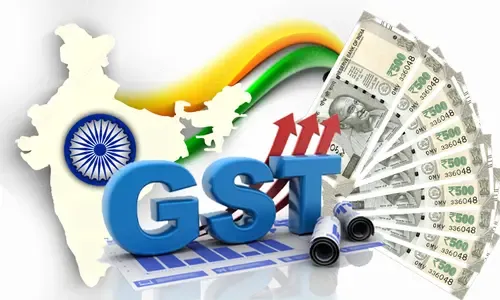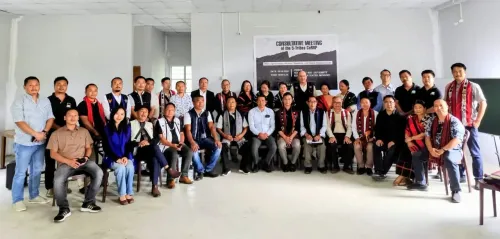Are GST reforms a gift for farmers and common people?

Synopsis
Key Takeaways
- The GST reforms have reduced tax rates on essential goods and agricultural equipment.
- Farmers can expect lower production costs due to these changes.
- The reforms aim to strengthen the agricultural economy in Punjab.
- Political reactions highlight the division within the Congress party regarding these reforms.
- Overall, these changes are positioned as beneficial for the general public.
Chandigarh/Shimla, Sep 5 (NationPress) The BJP factions in Punjab and Himachal Pradesh have characterized the recent GST reforms put forth by the Central government as a remarkable gift for both farmers and everyday citizens.
Punjab BJP president Sunil Jakhar articulated that under the proficient guidance of Prime Minister Narendra Modi, the GST Council has delivered crucial relief to the agricultural sector, which is incredibly timely.
Tax rates on tractors, farming machinery, harvesters, threshers, and various agricultural tools have seen a significant reduction.
“This will lead to decreased expenses for farmers, making agricultural production more affordable and bolstering Punjab’s farmer-centric economy,” he remarked.
Jakhar noted that the new reforms have abolished the 28% and 12% tax brackets, leaving only two: 5% and 18%.
“The GST on essential goods such as milk and flour has been entirely removed, while taxes on numerous commonly utilized products have been slashed to 5%. The removal of GST on life and health insurance is a groundbreaking move toward enhancing people’s security,” he added.
He emphasized that this decision will not only empower farmers and the agricultural economy but also serve as a significant relief for the general populace and small business owners.
Jakhar expressed his heartfelt gratitude to Prime Minister Narendra Modi and Union Finance Minister Nirmala Sitharaman for this historic decision, affirming that these reforms exemplify the Central government’s dedication to improving the lives of all citizens.
In contrast, Himachal BJP legislator Randhir Sharma criticized the Congress party for their contradictory stance, pointing out that while finance ministers from Congress-governed states supported the decisions during the GST Council meeting, Rahul Gandhi subsequently opposed these reforms.
He mentioned that state Industry Minister Harshwardhan Chauhan opposed GST decisions that are intended to ease the burden on the public.
“This reveals the Congress’s anti-people agenda,” he stated.
Chauhan had previously raised concerns about a potential revenue drop of Rs 1,000 crore for the state, which is already grappling with fiscal difficulties.
In response, BJP media in-charge Sharma conveyed, “We urge Congress leaders to consider not only the revenue of Himachal Pradesh but also the reforms that benefit every citizen. The Congress has failed to make any public-interest decisions during their tenure.
“By taking solely anti-people measures, they have imposed an economic burden on the citizens of Himachal Pradesh, making it difficult for them to accept the historic pro-public decisions made by the Central government. To enhance revenue, investment and industrial growth must be fostered in Himachal Pradesh, which will lead to increased revenue and job creation.”









